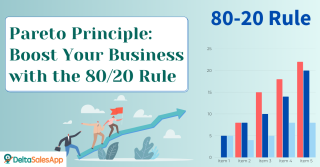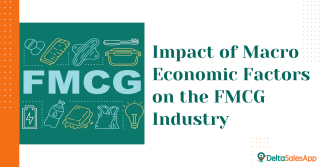FMCG Trade Marketing: Unlocking The Key To Effective Retail Success

Table Of Content
In the fast-paced world of FMCG (Fast-Moving Consumer Goods), staying ahead of the competition requires more than just quality products and efficient manufacturing. The real challenge lies in getting these products into the hands of customers. That’s where FMCG trade marketing comes in—a strategic approach that focuses on building strong relationships with retailers, optimizing product placement, and ensuring effective promotional activities.
In this blog, we will break down what FMCG trade marketing is, its importance, and how it helps businesses thrive in the retail landscape.
What is FMCG trade marketing?
FMCG trade marketing is a set of activities and strategies designed to increase the visibility, sales, and profitability of products at the retail level. Unlike traditional consumer marketing, which focuses on creating demand directly with consumers, trade marketing aims to influence the decisions of retail partners such as wholesalers, distributors, and retailers themselves.
The goal is to drive sales through targeted retail strategies, effective in-store promotions, and aligning marketing efforts with retail goals. It bridges the gap between manufacturers and retailers, ensuring that products reach the right shelves at the right time.
Key Functions of FMCG Trade Marketing
Successful trade marketing in the FMCG sector involves several critical functions that help brands stay relevant and competitive:
Retailer Relationship Management
Building and maintaining strong relationships with retailers is the backbone of trade marketing. FMCG brands must understand the unique needs of each retail partner and work collaboratively to promote products in a way that benefits both parties. Establishing trust, providing consistent support, and offering incentives for achieving sales targets are all part of the retailer relationship management process.Product Display and Placement
The point of sale is one of the most crucial aspects of FMCG trade marketing. How a product is displayed in-store can significantly impact its sales. Trade marketing involves optimizing product placement in high-traffic areas, end caps, and eye-level shelves to attract attention and drive impulse purchases. In-store displays are also an essential tool for influencing consumer purchasing decisions, which is why effective visual merchandising plays a key role in trade marketing strategies.Promotions and Incentives
One of the most effective ways to drive sales is by offering promotions, discounts, and incentives. Trade marketing focuses on designing schemes and incentives that encourage retailers to prioritize specific products over competitors. This could include volume-based discounts, bulk purchase deals, seasonal promotions, or co-marketing activities that enhance the retailer’s margins while increasing product sales.Retailer Training and Support
Many FMCG companies go beyond just selling products—they offer training programs to retailers, helping them understand the benefits of products and how to sell them effectively. Whether it’s educating retail staff on product features or providing them with marketing materials, these initiatives help retailers improve sales performance. Furthermore, point-of-sale materials, such as posters, banners, and brochures, support the retailer’s ability to market the products in-store.Market Research and Analytics
To be effective, FMCG trade marketing must be data-driven. By gathering insights on consumer behavior, sales trends, and competitor activities, brands can adjust their trade marketing strategies accordingly. Regular market analysis helps FMCG brands understand what’s working, identify new opportunities, and stay ahead of shifting consumer preferences.
Benefits of FMCG Trade Marketing
FMCG trade marketing offers a range of benefits for both manufacturers and retailers:
Improved Product Visibility: Well-executed trade marketing strategies increase the visibility of your products in stores, making it easier for customers to find and purchase them.
Increased Sales: Promotions, incentives, and effective product placement can lead to significant sales growth, as consumers are more likely to purchase products that are well-promoted and easily accessible.
Stronger Retailer Partnerships: By investing in retailer relationships, FMCG brands can ensure long-term success and collaboration with their retail partners, resulting in mutual growth.
Enhanced Brand Loyalty: Trade marketing strategies, especially those involving in-store promotions and personalized retailer support, help build a stronger brand presence and consumer loyalty.
The Role of Technology in FMCG Trade Marketing
In today’s digital age, technology plays a crucial role in FMCG trade marketing. From mobile apps that help track inventory and sales to data analytics tools that provide actionable insights, digital solutions are transforming the way brands interact with retailers. By utilizing technology, FMCG companies can ensure that their trade marketing efforts are more efficient, targeted, and impactful.
Key Tech Trends in FMCG Trade Marketing:
Sales Automation: Automating sales processes helps streamline communications between manufacturers and retailers, ensuring timely orders and deliveries.
Retail Analytics: By analyzing retail data, companies can adjust pricing, promotions, and product assortments based on actual sales performance and consumer preferences.
Mobile Solutions: Mobile apps for sales teams enable real-time tracking of product availability, stock levels, and retail promotions.
Conclusion
In a competitive FMCG landscape, effective trade marketing is vital for building brand awareness, boosting sales, and forging strong relationships with retailers. By focusing on product placement, promotions, and retailer relationships, and leveraging data-driven insights, FMCG companies can stay ahead of their competitors and create a seamless flow of products from the factory floor to the consumer’s hands.
If you are looking to optimize your trade marketing efforts, keep the focus on these core functions and use the latest tools and strategies to get the most out of your retail partnerships.
Message on Whatsapp
You can get in touch with us using Whatsapp. Send us a message and we'll get back to you a soon as possible



